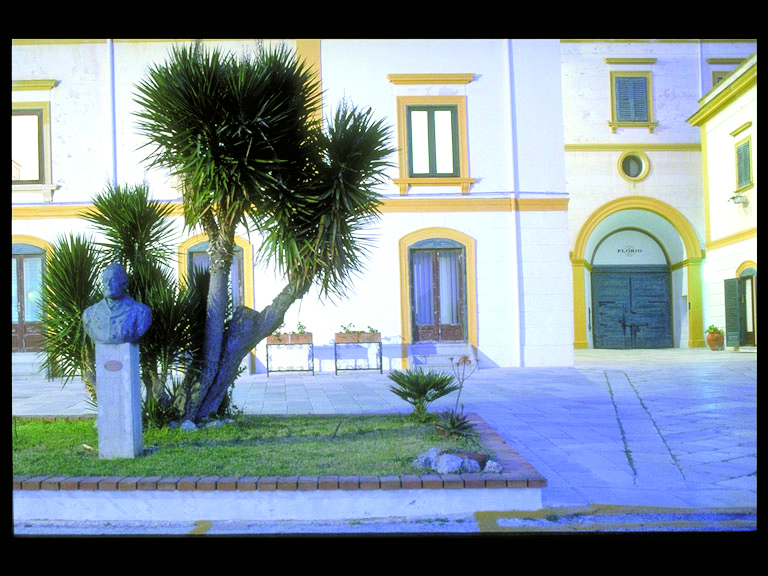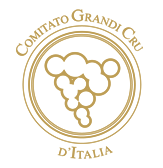
Duca di Salaparuta Estates and Wineries
This post is also available in:
 Italiano (Italian)
Italiano (Italian)
The Duca di Salaparuta Group represents three historical brands which have made Sicily and Italy famous all over the world: “Corvo”, “Duca di Salaparuta” and “Florio”; the first two were born in 1824 while “Florio” appeared in 1933. The vineyards of the latter winery are cultivated in different areas of western Sicily, from the province of Trapani to Marsala, while some others are in Pantelleria and in the Aeolian Islands.
In the province of Trapani, the uncontaminated nature is enhanced by the sunlight that gives it a most unique glittering amplified by the centuries-old salt pans – such bright look is cultivation (Prunus dulcis (Mill.) DA Webb), with rose spring blossoms.
This territory, overlooking the sea rich in fish, features gentle slopes planted with Moscato and Zibibbo grapes on their very ideal soil: the production of intensely fragrant and pleasant wines is thus guaranteed.
Near Marsala, a city with centuries-old history nestled on the far edge of Sicily and near Africa, there are other Duca di Salaparuta vineyards. The coastlines stand between the blue sea of the Egadi and Mozia islands and the green expanses of the vineyards.
In this area, there are also the workshops of professional coopers and the typical hinterland “baglio” structures, which are a testament of the past rural civilization, preserving the precious link between the ancient times and the future.
On the island of Pantelleria, called the “daughter of the wind” by the Arabs, there are striking chromatic contrasts among the main elements of the pristine landscape: green Mediterranean scrub and black coastlines rich in lava stone of volcanic origin.
Pantelleria Island also features several fertile terraces and the “dammusi”, the typical ancient buildings often surrounded by gardens with fragrant citrus fruits, capers and “Moscato di Alessandria” grapes – the latter species can grow and bear its precious fruit thanks to lava stone walls which offer protection from the gusts of the sea wind. The precious and highly appreciated Zibibbo grape grows abundant as well, enjoying that very same artificial protection and producing
large, sweet and fleshy berries with a peculiar and intense aroma.
Finally, in the Aeolian Islands, the enchanted land of fire and wind, the high and steep coastline and the rock formations appear as if they’ve been carved by the perennial waves. They’re livened up by the bright-yellow broom (Spartium junceum L.), the green luxuriant vegetation, the black of the obsidian rocks and the white pumice.
The grapes of those islands are quite unique and truly unmistakable, like “Malvasia” grapes which perfectly ripen in Salina and are usually left to dry on the traditional reed racks in the hot summer sun.
The “Corvo “brand grows its own vines, Nero d’Avola, Grillo, Syrah, Chardonnay, Grecanico, Frappato, and Insolia in several different locations: in Salemi, province of Trapani, the vineyards are exposed to the scorching sun but can benefit from clayey and fertile soil; in the hinterland of Palermo, limestone clay soils and fertile hills are blessed by a mild climate in the winter and very hot in summer; on the plateau between Ribeira and Cattolica, there’s never any lack of water, thus allowing the growth of patches of spontaneous vegetation and wheat fields on calcareous soils; in the hinterland of Gela and Riesi, the fertile hills rich in limestone and clay benefit from ideal exposure to the sun in the province of Agrigento, the calcareous soil and the mild climate guarantee the perfect grapes, while finally Gibbellina and Calatafimi, with their soft hills and a siliceous-clay composition of the soil, enjoy mild winters and long hot summers.
This post is also available in:
 Italiano (Italian)
Italiano (Italian)
Contatti
Via Nazionale Ss, 113 - Casteldaccia(PA)
091 945206
info@duca.it
Altre info
su prenotazione


